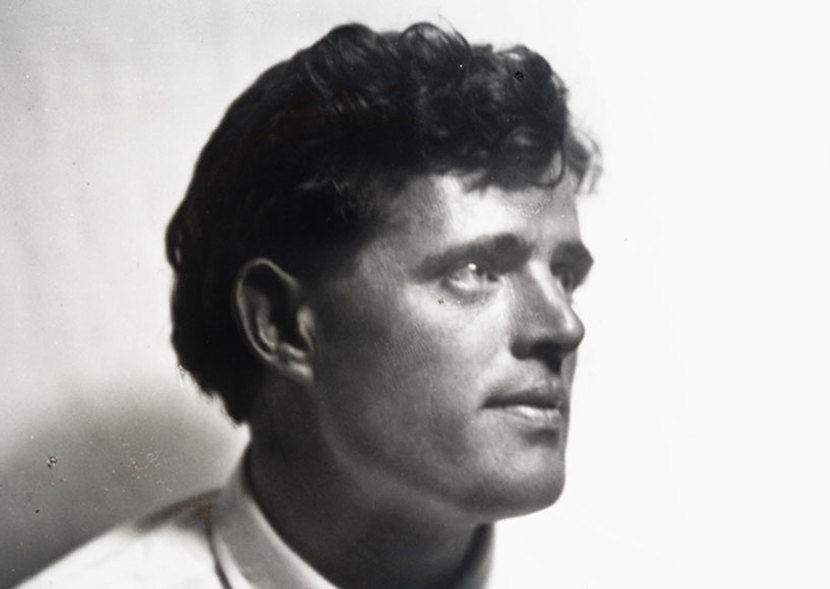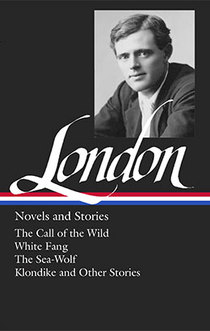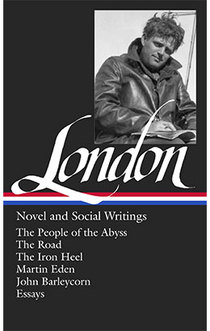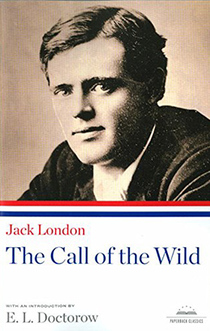
Major works:
The Call of the Wild • The Sea–Wolf • White Fang • “To Build a Fire”
“For example, the late Jack London. Where did he get his hot artistic passion, his delicate feeling for form and color, his extraordinary skill with words? The man, in truth, was an instinctive artist of a high order, and if ignorance often corrupted his art, it only made the fact of his inborn mastery the more remarkable.”—H. L. Mencken
“Jack London used to like to eat raw-meat sandwiches, and he sometimes fancied himself a ‘blood beast’ rampaging through life. . . . Alaska in winter made him as a writer. The Klondike was where the ‘cold of space smote the unprotected tip of the planet, and he, being on that unprotected tip, received the full force of the blow.’ He awoke: he assumed, in the clarity of the frozen moment, the mantle of his full powers. . . . May he roam forever in the Klondike of our hearts, he of the numberless stories, the fierce embrace of all of harsh existence. Give his stories to your sons and daughters, and for strong pleasure, read him again yourself.”—Los Angeles Times Book Review
“London had an aspect of a proletarian Byron: illegitimate, handsome, wildly romantic, casting himself as the rebel and revolutionary, admired by Leon Trotsky for his anti-capitalist polemics. He was the archetypal early burn-out, dead at 40 from the excesses that he lived and wrote about. . . . How he could write!. . . [London’s] perfervid rhetoric matches the great narrative force of his stories, long and short. He is fascinating to read, about beast and man, in fact or fiction.”—The Wall Street Journal
The Road
Jack LondonThe very poor constitute the last sure recourse of the hungry tramp. The very poor can always be depended upon. They never turn away the hungry. Time and again, all over the United States, have I been refused food by the big house on the hill; and always have I received food from the little shack down by the creek or marsh, with its broken windows stuffed with rags and its tired-faced mother broken with labor.


